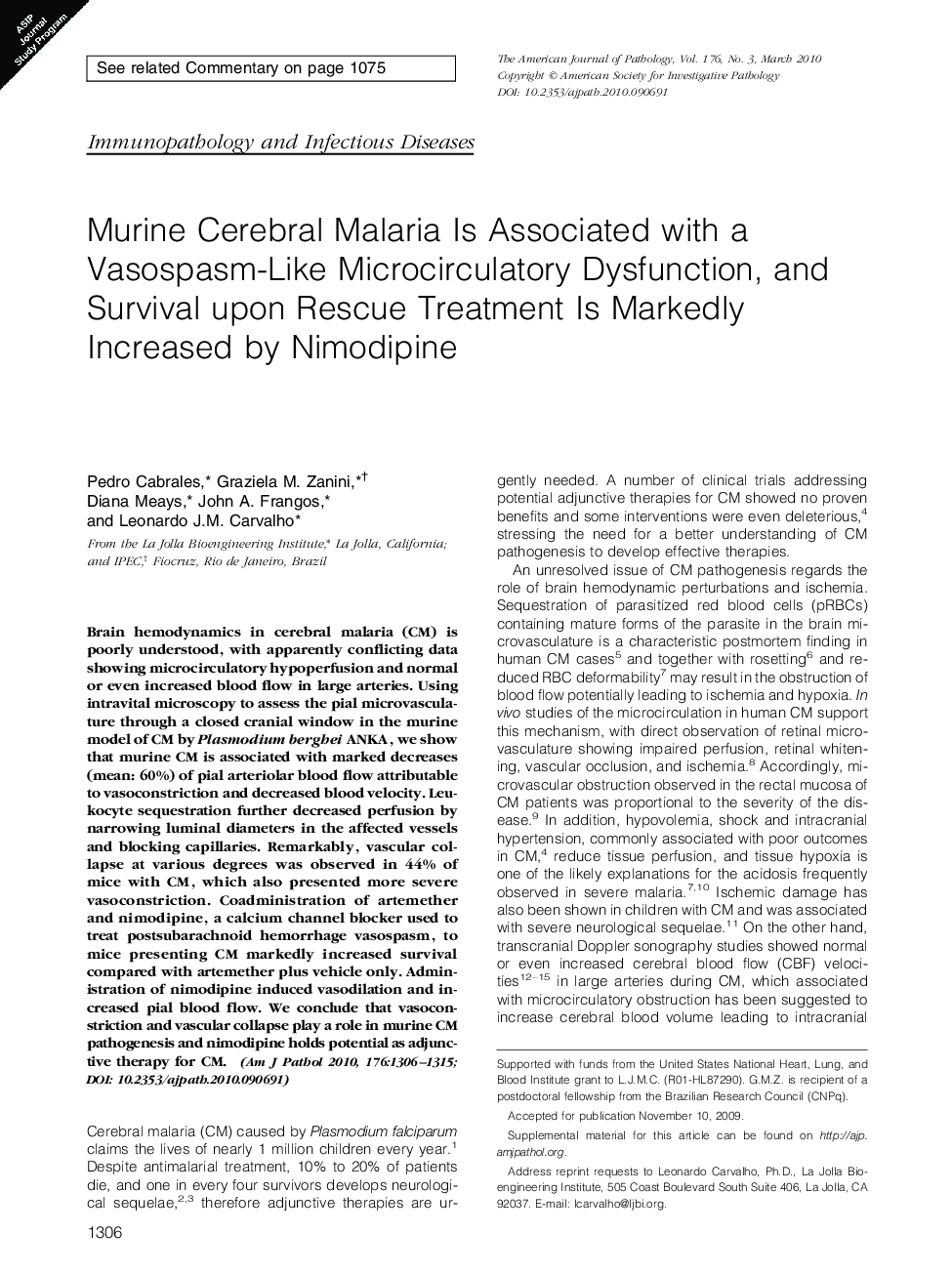| کد مقاله | کد نشریه | سال انتشار | مقاله انگلیسی | نسخه تمام متن |
|---|---|---|---|---|
| 5936663 | 1573444 | 2010 | 10 صفحه PDF | دانلود رایگان |
عنوان انگلیسی مقاله ISI
Murine Cerebral Malaria Is Associated with a Vasospasm-Like Microcirculatory Dysfunction, and Survival upon Rescue Treatment Is Markedly Increased by Nimodipine
دانلود مقاله + سفارش ترجمه
دانلود مقاله ISI انگلیسی
رایگان برای ایرانیان
موضوعات مرتبط
علوم پزشکی و سلامت
پزشکی و دندانپزشکی
کاردیولوژی و پزشکی قلب و عروق
پیش نمایش صفحه اول مقاله

چکیده انگلیسی
Brain hemodynamics in cerebral malaria (CM) is poorly understood, with apparently conflicting data showing microcirculatory hypoperfusion and normal or even increased blood flow in large arteries. Using intravital microscopy to assess the pial microvasculature through a closed cranial window in the murine model of CM by Plasmodium berghei ANKA, we show that murine CM is associated with marked decreases (mean: 60%) of pial arteriolar blood flow attributable to vasoconstriction and decreased blood velocity. Leukocyte sequestration further decreased perfusion by narrowing luminal diameters in the affected vessels and blocking capillaries. Remarkably, vascular collapse at various degrees was observed in 44% of mice with CM, which also presented more severe vasoconstriction. Coadministration of artemether and nimodipine, a calcium channel blocker used to treat postsubarachnoid hemorrhage vasospasm, to mice presenting CM markedly increased survival compared with artemether plus vehicle only. Administration of nimodipine induced vasodilation and increased pial blood flow. We conclude that vasoconstriction and vascular collapse play a role in murine CM pathogenesis and nimodipine holds potential as adjunctive therapy for CM.
ناشر
Database: Elsevier - ScienceDirect (ساینس دایرکت)
Journal: The American Journal of Pathology - Volume 176, Issue 3, March 2010, Pages 1306-1315
Journal: The American Journal of Pathology - Volume 176, Issue 3, March 2010, Pages 1306-1315
نویسندگان
Pedro Cabrales, Graziela M. Zanini, Diana Meays, John A. Frangos, Leonardo J.M. Carvalho,